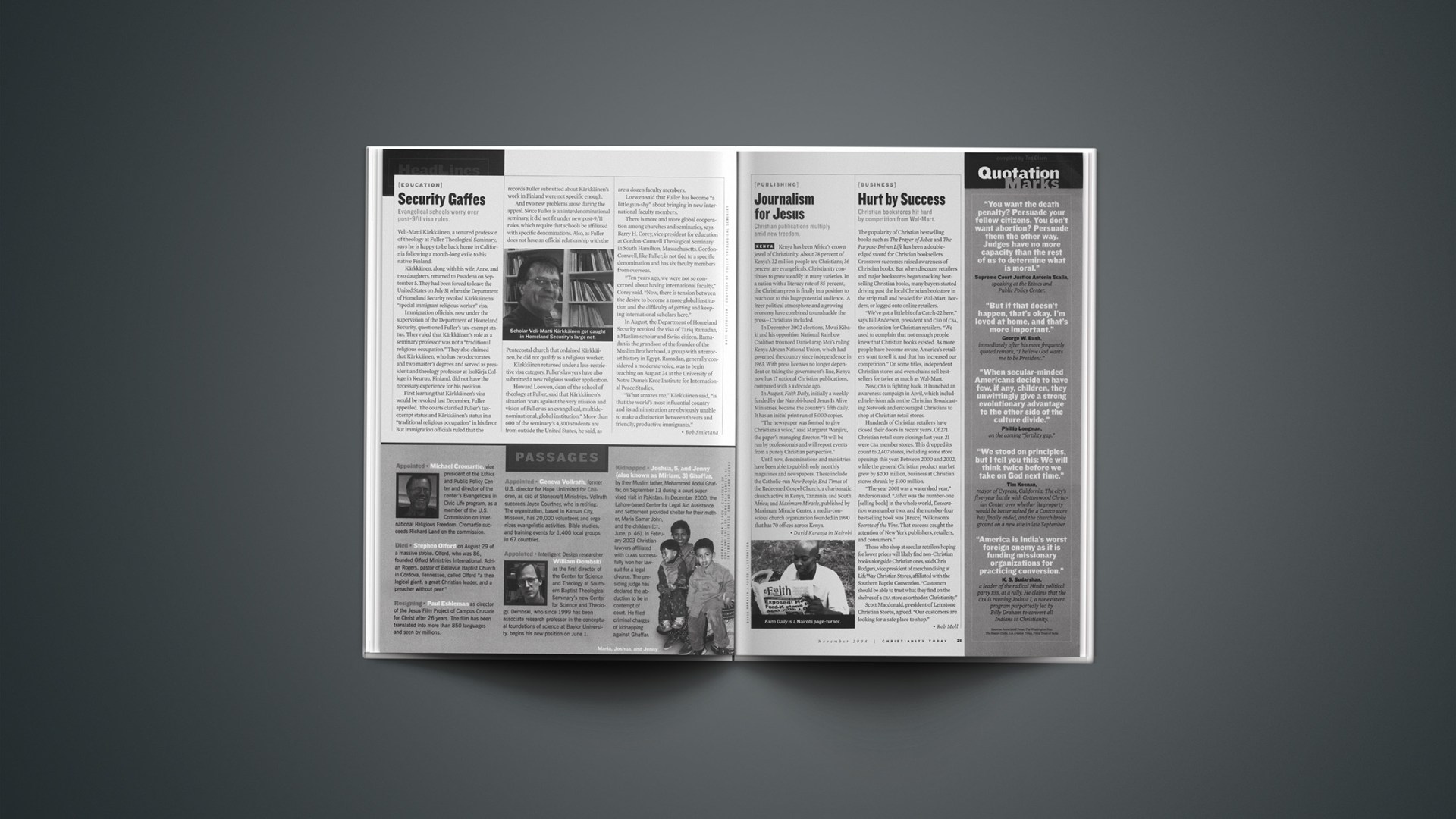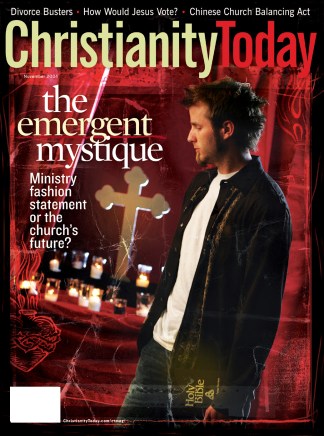Veli-Matti Kärkkäinen, a tenured professor of theology at Fuller Theological Seminary, says he is happy to be back home in California following a month-long exile to his native Finland.
Kärkkäinen, along with his wife, Anne, and two daughters, returned to Pasadena on September 5. They had been forced to leave the United States on July 31 when the Department of Homeland Security revoked Kärkkäinen’s “special immigrant religious worker” visa.
Immigration officials, now under the supervision of the Department of Homeland Security, questioned Fuller’s tax-exempt status. They ruled that Kärkkäinen’s role as a seminary professor was not a “traditional religious occupation.” They also claimed that Kärkkäinen, who has two doctorates and two master’s degrees and served as president and theology professor at IsoKirja College in Keuruu, Finland, did not have the necessary experience for his position.
First learning that Kärkkäinen’s visa would be revoked last December, Fuller appealed. The courts clarified Fuller’s tax-exempt status and Kärkkäinen’s status in a “traditional religious occupation” in his favor. But immigration officials ruled that the records Fuller submitted about Kärkkäinen’s work in Finland were not specific enough.
And two new problems arose during the appeal. Since Fuller is an interdenominational seminary, it did not fit under new post-9/11 rules, which require that schools be affiliated with specific denominations. Also, as Fuller does not have an official relationship with the Pentecostal church that ordained Kärkkäinen, he did not qualify as a religious worker.
Kärkkäinen returned under a less-restrictive visa category. Fuller’s lawyers have also submitted a new religious worker application.
Howard Loewen, dean of the school of theology at Fuller, said that Kärkkäinen’s situation “cuts against the very mission and vision of Fuller as an evangelical, multidenominational, global institution.” More than 600 of the seminary’s 4,300 students are from outside the United States, he said, as are a dozen faculty members.
Loewen said that Fuller has become “a little gun-shy” about bringing in new international faculty members.
There is more and more global cooperation among churches and seminaries, says Barry H. Corey, vice president for education at Gordon-Conwell Theological Seminary
in South Hamilton, Massachusetts. Gordon-Conwell, like Fuller, is not tied to a specific denomination and has six faculty members from overseas.
“Ten years ago, we were not so concerned about having international faculty,” Corey said. “Now, there is tension between the desire to become a more global institution and the difficulty of getting and keeping international scholars here.”
In August, the Department of Homeland Security revoked the visa of Tariq Ramadan, a Muslim scholar and Swiss citizen. Ramadan is the grandson of the founder of the Muslim Brotherhood, a group with a terrorist history in Egypt. Ramadan, generally considered a moderate voice, was to begin teaching on August 24 at the University of Notre Dame’s Kroc Institute for International Peace Studies.
“What amazes me,” Kärkkäinen said, “is that the world’s most influential country and its administration are obviously unable to make a distinction between threats and friendly, productive immigrants.”
Copyright © 2004 Christianity Today. Click for reprint information.
Related Elsewhere:
Weblog reported on the flap when it occurred: Weblog: Fuller Prof Ordered to Leave U.S. | U.S. forces tenured Fuller theologian to leave country (Aug. 09, 2004)
More information about Veli-Matti Kärkkäinen can be found at Fuller’s website.
News elsewhere includes:
Finnish theologian forced out of US because of visa rule changes | A Finnish theologian at the largest interdenominational seminary in the United States is being forced to leave the country due to new rules governing visas for religious professionals. (Ecumenical News International—29 July 2004)
U.S. Ousts Theologian | A renowned Finnish theologian and tenured professor at Fuller Theological Seminary in Pasadena, Calif., has been forced to leave the United States because he did not qualify under new visa regulations for religious professionals. (Religion News Service—August 7, 2004)










